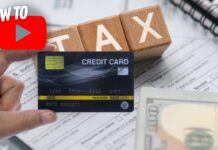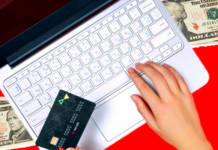NOTICE: This post references card features that have changed, expired, or are not currently available
There’s a tax ruling which will be of interest for anyone who manufactures spend (and even those who don’t) as the IRS was trying to get more than $300,000 worth of rewards from American Express classed as taxable income for a couple who manufactured spend.

You can read the judge’s filing here which also contains a summary of the IRS’s case against the couple. As a quick summary:
- 2013
- The couple spent $1,208,376 on the following transactions:
- Visa gift cards
- Reloadable debit cards
- Money orders
- They redeemed $36,200 in Reward Dollars
- The couple spent $1,208,376 on the following transactions:
- 2014
- The couple spent $5,184,033 on the following transactions:
- Visa gift cards
- Reloadable debit cards
- Money orders
- They redeemed $277,275 in Reward Dollars
- The couple spent $5,184,033 on the following transactions:
That means that the couple redeemed a total of $313,475 in Reward Dollars which wasn’t included as income on their tax returns. The IRS somehow got wind of this and issued a notice of deficiency to the couple stating that they owed an additional $9,928 in taxes for 2013 and $93,845 for 2014, so a total of $103,773 extra due in tax – ouch!
Before I go any further, it’s important to note that I’m not a lawyer and am far from being any kind of tax expert. It would therefore be worth discussing with your CPA if anything arising from this could affect your taxes.
While this all sounds like bad news, my reading of this is that it’s nowhere near as bad as it could have been. Although the IRS was seeking $103,773 in additional tax being paid by Konstantin Anikeev and Nadezhda Anikeev, it doesn’t look like the judge has ruled in their favor entirely.
It was Mr & Mrs Anikeev who brought the case to court against the IRS after receiving the notice of deficiency. That makes the Anikeevs the petitioners and the IRS the respondents which is important to note when reading the filing, because if you incorrectly assume the Anikeevs are who are being referred to as the respondents, that completely changes the context.
One of the first things to note is that the IRS wasn’t trying to claim that the couple’s ~$6.4 million of spend was taxable. Rather, the Reward Dollars they received from American Express on that spend was deemed by the IRS to be taxable.
The judge appears to have ruled both for and against the IRS depending on the types of transactions. As mentioned earlier, the Anikeevs used their Amex cards for three types of transactions:
- Visa gift cards
- Reloadable debit cards
- Money orders
What’s also important to note at this point is that there were two types of transactions involving money orders – money orders purchased using Visa gift cards and money orders purchased directly with their Amex cards at Rite Aid. This is a key distinction in the judge’s ruling.
The judge’s ruling states the following with regards to transactions where the couple purchased Visa gift cards and then redeemed them for money orders:
In conclusion, we hold that the Reward Dollars associated with the Visa gift card purchases were not properly included in income.
Upon first glance, that could be interpreted that the Anikeevs should’ve included the Reward Dollars earned as income on their tax returns. However, the context of this part of the ruling is the judge addressing how the IRS has calculated income in their notice of deficiency. As a result, the judge’s ruling seems to be that the IRS’s calculations of the Anikeevs’ income improperly included Reward Dollars earned from Visa gift card purchases and therefore weren’t subject to income tax. (n.b. While I’m not a lawyer, a lawyer reached out to Frequent Miler to advise that this is his assessment of this part of the ruling too.)
The other types of transactions – Moneygram bill payments via reloadable cards funded by their Amex cards and money orders purchased directly with their credit cards (rather than via Visa gift cards) – are regarded differently. That’s because the judge regarded Visa gift cards as a product which weren’t redeemable for cash, whereas bill payments and money orders obtained directly by paying with their credit card (rather than having a Visa gift card as a middleman middleproduct) were cash equivalents. The ruling therefore states that:
The money orders are not properly treated as a product subject to a price adjustment because they were eligible for deposit into petitioners’ bank account from acquisition. Similarly, the cash infusions to the reloadable debit cards were not product purchases. The reloadable debit cards were used for Moneygram transfers, which are arguably a service. However, the Reward Dollars in dispute were issued for the cash infusions, not the transfer fees. Therefore, we uphold respondent’s inclusion in income of the related Reward Dollars for the direct purchases of money orders and the cash infusions to the reloadable debit cards.
Unfortunately the filing doesn’t provide a spending breakdown between credit card > Visa gift card > money order transactions and reloadable debit card bill payments and direct credit card > money order transactions. It’s therefore not clear how much the couple owes the IRS; if the majority of the transactions involved Visa gift cards, that would greatly reduce their liability.
It takes a little while to read, but I’d recommend reading the filing as some of the judge’s comments are quite amusing and, in what’s presumably understated judge-speak, seems impressed by the Anikeevs’ shenanigans. For example:
Petitioners’ aggressive efforts to generate Reward Dollars have created a dilemma for respondent which is largely the result of the vagueness of IRS credit card reward policy. Petitioners clearly acquired economic benefits by cleverly and relentlessly manipulating the Rewards Program. Their actions never offended American Express and had Mr. Anikeev not been so successful in his efforts he likely would have been ignored by the IRS.
Based on this ruling, it seems like rewards earned from purchases of Visa gift cards which are then converted to money orders are safe from being taxable right now (but again, consult your CPA – my impression is in no way tax advice). Other types of manufactured spending techniques which don’t involve the purchase of a product or service on the other hand could come under more scrutiny going forward.





[…] much buzz about a court case…Judge Rules Some Credit Card Rewards-Earning Activity Is Taxable. And everybody pretending to be a tax attorney just like so many recently have become […]
Thank you for being clear! I’ve seen a YouTube video already that explained this incorrectly.
>>It was Mr & Mrs Anikeev who brought the case to court against the IRS after receiving the notice of deficiency. That makes the Anikeevs the petitioners and the IRS the respondents which is important to note when reading the filing, because if you incorrectly assume the Anikeevs are who are being referred to as the respondents, that completely changes the context.<<
Just a quick note. That is always the way tax court works. The IRS does not need to sue you to seize your assets. So it is the citizen who must sue the IRS to keep their assets, which removes the burden of proof from the IRS in court.
My guess they were using Amex OBC, when it was unlimited, but then Amex shut down most of the people who spent more than $50k per year.
Was it possible to buy MO at RA with CC in 2013, 2014? I was not aware of that, but was buying a lot of fee free GD reloads there back then. Then there were fee free reloads of Serve at CVS directly from CC (Citi TYP card 5x unlimited). Golden days…
I remember the kid working at the cvs after they increased purchase limits for vanilla reloads to $5k thought I was a drug dealer.
I suspect they knew someone at that store. But yes, those were the golden years. Now, who reported them? Amex or a bank? Whatever investigation there was based on the optics probably didn’t produce all the fruit the investigators were imagining (money laundering, which this is not). They still made out in their ms gain and had found a/or multiple unicorns as many did in those days. It was already decided in a well known case that any rewards from buying gift cards is not income but just a purchase rebate. I’m mostly out of the ms hobby now due to other things which take my time and have traveled “free” plenty. I even tried to travel to a covid-free island recently which was promoting they were open for business, but the resort ended up not opening when they had hoped and then the airlines cancelled flights to there because so many hotel reservations got cancelled. I still have lots of points plus past ms helped us in multiple ways. So, it’s time to remodel and add to our residence. One day, we hope to travel again but at least we’ll have a nicer place to actually live in full time. We’ll put plenty of spend on our project, so the main thing we’ll look for in card offers are large bonuses to reward us for the spending. I also imagine many ms hobbyist will be into buy/resell as items have become rarer due to factory slowdowns. Seems this new administration is more into lock downs or keeping skilled workers home anyhow, so look for opportunities in the resell side of rewards, which is not ms. Some countries are having a very bad time getting enough product imports from the US and that can provide some, yet difficult, opportunities for those of us who know what’s in demand. I don’t wish for it to stay this way. Ask any plumber how many times they’ve had to replace defective water heaters because some US factories don’t have all their experienced workers on the line or social distancing which the factories weren’t set up for to be efficient. The vaccine isn’t permanent, but once herd immunity happens that will help with this virus. And, hopefully labs will be more careful about storing viruses for study which were meant to die off quicker in nature instead of being preserved by humans. I understand the motive behind it, but it is playing with fire and destroyed so much of the travel industry. Despite working from home, we’ve still had 2 members get it and have lengthy hospital staays (theory presented to us is they got it at the hospital when they went in for something else). I need a vacation before I start the building project.
Larger (definitely $10K and above) are reported to the government.
The guy below was trying to hide drug money with money orders.
https://bangordailynews.com/2013/09/05/news/calif-man-gets-5-years-for-trying-to-hide-cash-from-irs-by-buying-money-orders/
Yes, I also believe it was where they made deposits at that got eyes on the. Even if a teller has ml suspensions for $1000 mo deposit they can report. It happened. Wastes a lot of investigators’ time, but optics are important even though a hobbyist isn’t doing anything wrong depositing a single $1k mo.
Send the check to “Treasury of The United States”
not the I.R.S.
See if “They” actually endorse it…
Any idea how this will affect rewards earned thru mortgage payments via Plastiq? If the rewards earned are greater than Plastiq fees, will the difference be considered income? Or will it be a rebate on principal/interest/taxes/insurance that is included in the payment, so not taxable? Also, complicating factor is interest can be claimed as a tax deduction.
I don’t see how paying a mortgage with Plastiq can result in taxable rewards. I pay lots of other bills by credit card and they’re considered fine. Some are utility bills that the utility processes through a third party, western union speedpay. Why wouldn’t these be treated all the same? Why would a Plastiq payment be seen as a cash equivalent but not my electric bill?
Is it possible to do this today. Money orders are frowned by Banks. Citi and other banks shut you down. Store clerks do not like ti when you buy MO with gift cards. One or twice okay. 5 Million in MO, not possible these days
Stephen — this is a much better analysis than most of boardingarea, which has been fairly hysterical. (As in it has been histrionic, not funny.) You have it mostly right. In many respects the ruling is good in that it endorses the IRS’s long-held view that credit card rewards are rebates and not income. For 99.9999 percent of us this ruling will not matter and even for the hardcore MSers that might have something to worry about, many of the taxable practices are no longer available. The danger is that the IRS issues some guidance going forward with the banks’ input or consent relating to gaming activities. (For anyone reading, I’m not your lawyer or accountant and this is not legal or tax advice and you’d be a moron to accept legal or tax advice from the comments of a blog, even one as great as this one. Consult your own CPA or lawyer!)
Thank you! It would certainly suck if the IRS officially changed the rules in the future, but I guess at least we’d have certainty going forward at that point and so could make informed decisions.
I had the same reaction, appreciating your better organized, clear writing with reasoned — and brief — initial assessment.
Still, I’m wildly confused, wondering about practical application… So is the judge here suggesting buying vgc’s does not constitute a taxable event, but buying money orders does? But what say we then about the widely practiced habit of buying vgc’s and then liquidating them by buying money orders? Distinction without a difference? Just in time for next week’s staples deal….
Based on their activity, it sounds like they were buying money orders from Rite Aid directly with their credit card. Buying the Visa gift card and then buying a money order seems to be an important distinction as you’re earning rewards for buying an actual product rather than a money order which they don’t seem to regard as a product.
I don’t think they were buying money orders directly with a credit card. That’s considered a cash advance by the AmEx, Visa, and others. It’s AmEx -> Visa gift card -> money order. More than likely it was Vanilla Visa prepaid cards because back at that time, MSing into the six figures required very little effort with those Vanillas.
The filing specifically states “On occasion Mr. Anikeev purchased money orders from Rite Aid with one of the American Express cards. The purchase of these money orders generated Reward Dollars.”
The filing is very clear about distinguishing between buying Visa gift cards and liquidating them via money orders and buying money orders directly without buying a Visa gift card first.
Yes, but that was only on occasion. The majority of purchases were gift cards->money orders. Purchasing MO directly with a CC is not sustainable because of the cash advance fees.
Best disclaimer language ever!
how were the able to purchase so many gift cards especially with amex? when amex was offering bonus points on grocery spend they were withholding even $100 gift card purchases??
This was back in 2013 and 2014, so before they seemed to have such a keen eye on these types of transactions. Having said that, even now it only seems to be an issue when working on minimum spend requirements and during temporary promos; for 4x on the Amex Gold card and 6x on the Hilton Surpass card, they don’t seem to be as fussy as those are ongoing categories.
Given that they both had full time jobs at the time, their employers might well be asking if they did any work at all in 2014. Seems MS’ing would have consumed a hell of a lot of their time
What if the defendants never cashed out their rewards? Is that still considered income? Deferred income?
Also, if purchasing money orders with a Visa card was ruled as income, would it still be income if the money order was used to pay a merchant who wouldn’t accept a credit card? Perhaps it’s not the act of purchasing money orders with a credit card that’s considered as generating income; it’s if that act actually generates income…rewards.
With regards to your first set of questions, I’d guess it would only be taxable if and when they cashed out. Again, IANAL though.
With regards to your other questions, if you were legitimately paying a merchant for goods or services, that wouldn’t be classed as income. If you were paying a merchant and getting the vast majority of that money back, this ruling seems to be – it depends. If there was a product or service you were paying for as the stage before getting the money back, I get the impression based on the judge’s ruling that the rewards earned from those transactions wouldn’t be taxable. If there wasn’t what the IRS would classify as a product or service in between though, it seems like it would be taxable based on this ruling.